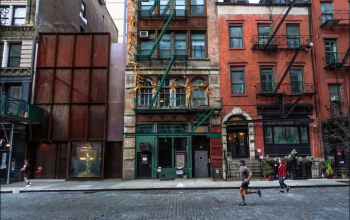
Stuff no seller wants you to know about
The term “buyer beware” doesn’t just apply to folks on a used car lot, kicking the tires of a recently repainted Buick. Buyers of New York City condos and co-ops need to be wary too because purchasing an apartment in a “lemon” building or one that’s about to undertake some costly repairs, can cost you a ton of money. With over one million buildings in New York City, many of them quite old and in need of repair, it pays to do your homework before you buy.
Unfortunately, there isn’t a “Carfax” service for apartments that can tell buyers of hidden problems of a building. However, there are ways of uncovering problems before you buy. Knowing this beforehand can provide you with leverage when – or if – you begin price negotiations.
Leaky sinks or boiler blowups
The kinds of problems that could be costly to buyers are not of a cosmetic nature where a seller hangs a picture on the wall to hide a crack in the wall. We’re talking here of major problems that could cost hundreds of thousands of dollars to fix. To come up with those funds, co-op and condo boards may have to resort to the dreaded “assessment” whereby owners are charged a large fee, one beyond their monthly maintenance charge. These can be huge depending on the nature of the problem and how many owners there are in a building.
If a building needs to re-tar a roof, replace boilers or put in new elevators, the assessment amount could be large. Sellers are supposed to disclose upcoming issues like this, if, that is, they know about them themselves. However, for obvious reason, they often don’t reveal these things. So how does a buyer find out about upcoming, costly assessments? A little detective work is called for.
Uncovering costly problems
Often, a good real estate agent, one that is a specialist in a particular New York neighborhood, will know of a building’s reputation and infrastructure issues. They get this information from previous transactions in the building or from general gossip among doormen and residents.
Another way of uncovering costly problems before you buy is to get a hold of the building’s annual report, monthly newsletter – if they have one – or the minutes of board meetings. In almost all cases, boards communicate with owners/tenants through the written word if, for no other reason, than to cover their own butts if something goes amiss.
These reports from the board often downplay problems so as not to lower the overall value of the building. In most cases however, these reports will accurately chronicle issues relating to a building’s operations and maintenance. If there is a major problem that will need to be addressed by an assessment, you’ll likely to find it here.
The best way of being forewarned about upcoming assessments is to hire a seasoned real estate lawyer who knows their way around these issues. They can usually pick apart a building’s financial statement and uncover problem areas that might signal that an assessment is on the horizon. A real estate lawyer can also examine a building’s reserve funds and history of maintenance projects. They can also send the board a questionnaire asking, point blank, about upcoming assessments. Sometimes you’ll get a straight answer, and sometimes you won’t. This sort of examination should be done by someone who is experienced in the reviewing co-op and condo financials in New York City.
Sometimes it’s as simple as asking around about the reputation of a building. People love to gossip and a friend of a friend who lives in a building you are looking at may have the dirt on what’s really going on. Did Miss Smith get stuck in the elevator again? How about heating and plumbing problems. What’s that water stain on the lobby ceiling from? Is there chatter about the dog-eared furniture in the lobby? These things can be a red flag to upcoming problems. Even chatting up a doorman or two can give you great insight into the goings-on of a building. These guys spend eight hours a day working in the building, and they can give you the real scoop of what’s really going on.
Even just looking at a building’s exterior can give you an idea if it’s well maintained. If it looks shabby and the ornamental gargoyles on the façade are crumbling, you can be sure that the city will shortly contact the building’s management company and require them to do costly repairs.
Buyers should also go to: www.gohomeny.com. They are a great source of information that usually isn’t public. They can save you thousands of dollars, so check them out, and remember, “buyer beware”.
Be Heard at Go Home NY
Be heard! Leave your apartment, condo, and coop building reviews at Go Home NY! Know a building's managers are awful? Have the inside line on a perfect building? Anything in between? Express your voice and be heard. Leave a review at Go Home NY.


